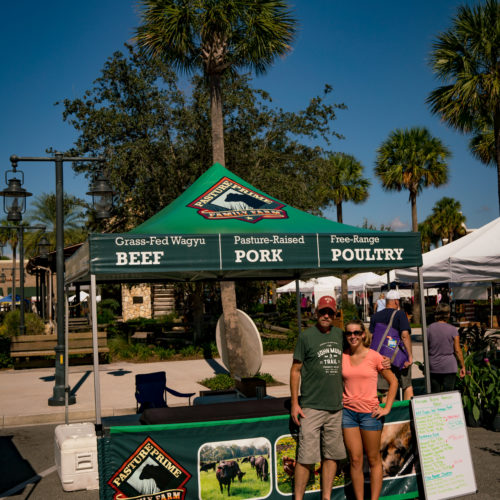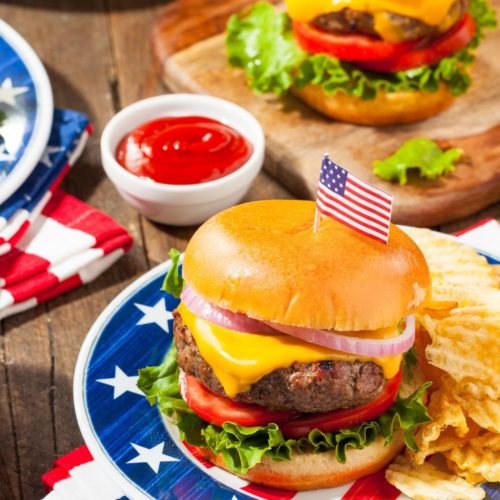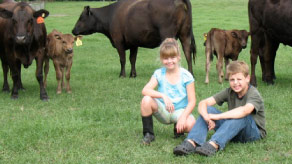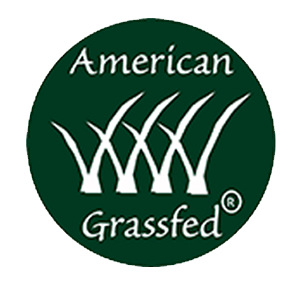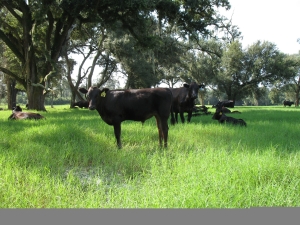
We often get questions from customers on the status of our grass-fed beef; namely, is our meat “certified organic grass-fed beef?” We want to devote some space to this, because we understand that organic grass-fed beef and organic meats are a popular topic at the moment, so we want to clearly explain our position, explain our farm’s practices, and dispel any myths that may be out there regarding the purity and health benefits of our grass-fed beef and pastured meats.
First, for you to understand our operation, we must explain the distinction between a sustainable farm and a farm that is simply “certified organic.”
Sustainable Farming and Organic Farming Practices
Our family operates a sustainable farm in Summerfield, Florida, and it’s not a large operation – Pasture Prime Farm is roughly 500 acres, and it is a multi-species farm, meaning that we raise grass-fed beef, pastured pork, and free-range poultry – all of our animals equally contribute to the health and vitality of our farm’s pastures and ecosystem, which is why we choose to raise multiple species, versus run a monoculture-model farm.
In a sustainable farm system, such as ours, every species and the type of pasture rotation we practice contribute to the health of the soil and ecosystem; on traditional, “non-sustainable,” or industrial farms, because the concentration of animals is higher, and typically only one type of animal is raised, the farms require the use of fertilizers and must supplement food with additives, since the pastures or environment is not able to fully sustain the operation. The result of these practices not only erodes the quality of the meat and the health of the animals, but it also contributes to a damaged ecosystem. In short, these types of farms are not “sustainable” – they require artificial input to function.
Now, here’s where a big distinction lays – a farm can be “certified organic” but not be sustainable. Monoculture farms can be organic, and in fact, you can buy “certified organic beef” that comes from cows finished on feedlots (which are the antitheses of a sustainable farming operation).
At Pasture Prime Family Farm, we are truly sustainable, and our grass-fed cattle are never finished on grains or sent to feedlots. This is why we prefer the label “Sustainable Farm” rather than “Organic Farm.”
So What About Certified Organic Grass-Fed Beef?
Certified organic grass-fed beef cattle must meet the following criteria, according to the USDA:
- Born and raised on certified organic pasture
- Never receive antibiotics
- Never receive growth-promoting hormones
- Are fed only certified organic grains and grasses
- Must have unrestricted outdoor access
At Pasture Prime Family Farm, all of our farming practices and our grass-fed beef meet these criteria. However, to undergo “certification” from the USDA requires an expensive, lengthy process that, in the end, doesn’t change the purity of our practices or the quality of our meat – it just results in higher overhead, which we don’t want to pass on to you, our consumer. Our goal is to offer affordable, healthy grass-fed meat online, for purchase on our farm, and to be available at farmers’ markets and in local restaurants.
To guarantee the purity of our grass-fed meat and, in our opinion, to offer a higher standard than “Certified Organic Grass-Fed Beef,” we have third-party certifications from respected organizations, including the American Grass-Fed Organization and Animal Welfare Approved.
Finally, we’re so confident about the humanness of our practices and the quality of our grass-fed meat, that we have an “open-door” farm policy – we invite visitors to come out and visit us! We want you to see the beauty of our sustainable farm for yourself.



